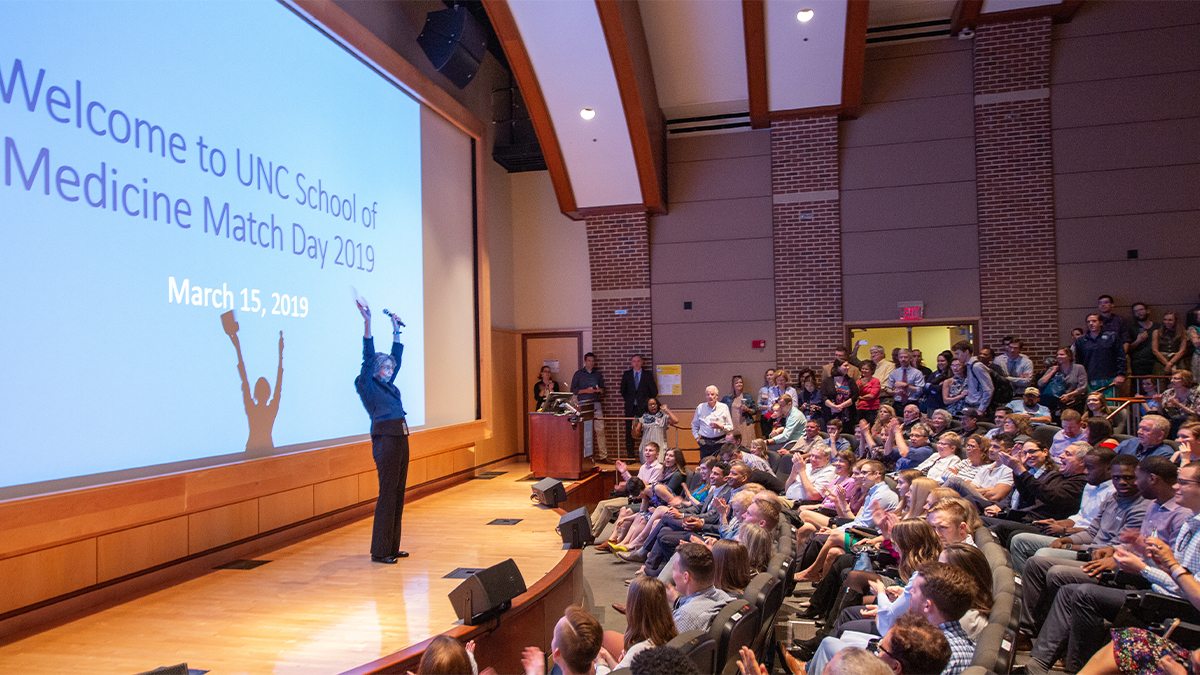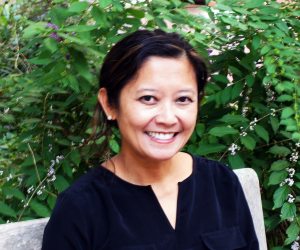Making a match
On March 17, nearly 200 UNC School of Medicine students will learn where they will continue their clinical training.

Every year, medical students across the country anticipate Match Day as the start of their careers after an arduous journey through medical school. On March 17, nearly 200 students ready to graduate from Carolina’s School of Medicine will learn where they will be placed for residency for the next several years.

Alice Chuang (Photo courtesy of UNC School of Medicine)
Ahead of Friday’s celebration, Dr. Alice Chuang, the assistant dean for student affairs in the UNC School of Medicine, talks about what Match Day means to these students and how the process connects programs from across the country with Carolina students.
What is Match Day?
It is the day that most medical students across the country find out where they will be continuing their clinical training, or residency, after graduation. There are some situations that require an early match. The military has its own match with earlier deadlines so military students secure a position and find out earlier. Additionally, students who are interested in ophthalmology or urology apply through a different process and also find out earlier.
How does the match process work?
Before the match, students apply to residency programs of interest, programs review applications and then interview the students who would make promising residents in their program. After the interview season is over, students submit a list of programs where they would like to pursue residency training in order of preference. Simultaneously, programs submit a list of the applicants they interviewed whom they would like to recruit to their program in order of preference. The match process is a computerized algorithm that matches each applicant to one program based on the lists submitted.
How do students decide which programs to apply to?
Students first decide what specialty they are interested in. Then they research the various programs that offer training in that specialty. At Carolina, we have a system of support for career advising. Each student enters a college in the medical school during orientation and is assigned an advisor who meets with them regularly throughout their medical school career. Students who travel to one of our other campuses in Asheville, Wilmington or Charlotte for their clinical training have access to an on-site campus advisor who can also provide wisdom and insight. Finally, once they have decided on a specialty, they are assigned a specialty-specific advisor who can help them think about what programs would be the best fit for their professional goals.
What does Match Day look like at Carolina?
Match Day is a huge in-person event. Students, administrators, family members and faculty gather together at noon on Match Day. Students are emailed the name of their program match, and then after each student has received their email, we will reveal the programs to which the students in the class matched using a PowerPoint for all to see and celebrate. It is rowdy and joyful. There is laughter and some tears, and it is a very emotional day for everyone. During COVID, we transitioned to a virtual match. This year, we are bringing back the in-person celebration.
One other UNC tradition that started before the pandemic is that we put out a decorated bedpan on the stage. The late Dr. Robert Bashford, our former associate dean for admissions, would start by putting the first dollar in the bedpan. Students are called in random order to come on stage. Each student puts another dollar in the bedpan as they walk across the stage. The last student to be called gets to keep the bedpan and the money, though typically they share with their classmates in celebrations afterward.
What will students accomplish in their matched programs?
Students will continue their medical training. They will, of course, have their medical degrees, but as you can imagine, they still have a lot to learn. While medical school curricula are undifferentiated, residency curricula are particular to the knowledge and skills needed to practice successfully in a specific specialty field of medicine. Residency training length and intensity differ based on the specialty. At the end of residency, the goal is to pass specialty-specific certification exams.




